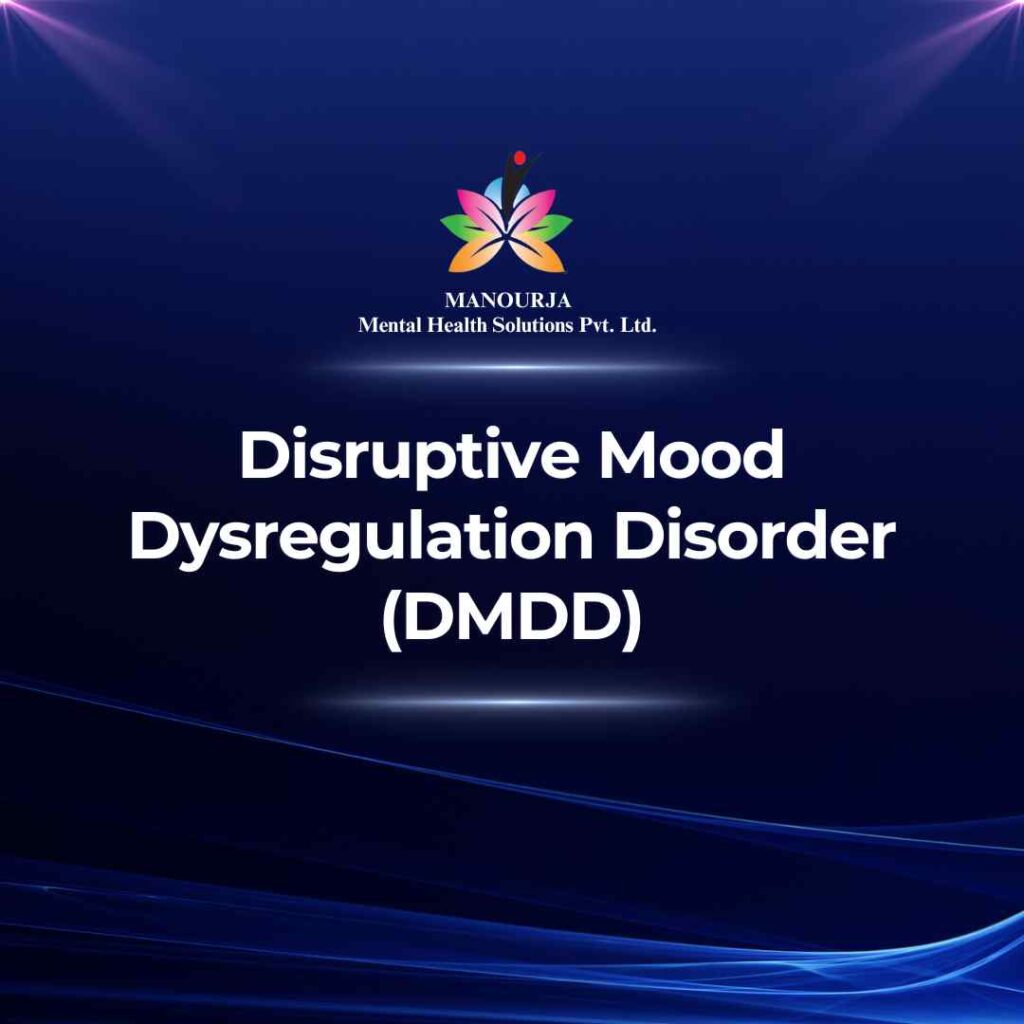Disruptive Mood Dysregulation Disorder (DMDD)

Disruptive Mood Dysregulation Disorder (DMDD) is a relatively new diagnosis in the field of psychiatry, introduced in the DSM-5 to address the need for a better classification of children displaying chronic and severe irritability and temper outbursts. DMDD is intended to help differentiate between children who have chronic, severe irritability and those with bipolar disorder, which involves distinct episodes of mania and depression.
Meaning
DMDD is a childhood condition characterized primarily by severe recurrent temper outbursts that are grossly out of proportion in intensity or duration to the situation. These outbursts must occur, according to DSM-5 criteria, three or more times a week. Between these outbursts, the child has a persistently irritable or angry mood most of the day, nearly every day, and is observable by others in the child’s environment (e.g., parents, teachers).
Characteristics
The key characteristics of DMDD include:
- Severe temper outbursts: These occur frequently, as mentioned, and can be verbal or behavioral (e.g., physical aggression towards people or property), and are disproportionate to the situation.
- Persistent irritability: This is not just limited to the time of outbursts but is generally constant.
- Trouble functioning: Whether in school, at home, or with peers, the child’s mood and outbursts make daily functioning challenging.
Forms
DMDD is generally considered as a singular diagnostic category without distinct subtypes. However, the severity and frequency of outbursts can vary, and these symptoms can overlap with those of other conditions such as ADHD, anxiety, or oppositional defiant disorder (ODD), complicating diagnosis and treatment.
Treatment
The treatment of DMDD involves a combination of psychotherapeutic and pharmacological approaches:
- Psychotherapy: Cognitive Behavioral Therapy (CBT) is commonly used to help the child manage their irritability and anger, teaching them to respond to situations with less emotional intensity. Psychotherapy can also involve parents and teachers to ensure consistent approaches across different environments.
- Medications: While there is no specific medication approved for DMDD, treatments may include medications typically used for ADHD or anxiety, as these can help manage symptoms of irritability and agitation. In some cases, antidepressants or antipsychotics may be prescribed.
- Parent Training: Educating and training parents in techniques to effectively handle and respond to outbursts can also be beneficial. This may involve strategies to reinforce positive behaviors, set consistent rules, and manage their own reactions to outbursts.
- School Involvement: Collaboration with school personnel is crucial to ensure that the child receives appropriate support in the educational environment. This may include individualized education plans (IEPs) or 504 plans to accommodate the child’s needs.
Challenges in Treatment
One of the challenges in treating DMDD is its potential overlap with other disorders, requiring careful assessment to distinguish it from similar behavioral issues. Another challenge is managing the stress that the disorder can place on family systems, making family therapy and support an essential component of treatment.
.
By focusing on a combination of behavioral strategies, psychotherapy, and appropriate medication management, treatment for DMDD aims to reduce the frequency and severity of temper outbursts and improve the child’s mood and functioning across multiple environments.
At MANOURJA, we believe in the transformative power of counseling. Our experienced therapists offer a safe and supportive space where you can explore your thoughts, emotions, and challenges. Through personalized counselling sessions, we’ll work together to develop coping strategies, build resilience, and achieve lasting positive change. Discover the path to a healthier, happier you with MANOURJA counselling services.
MANOURJA Rehabilitation Services
At MANOURJA, we’re dedicated to helping you in rebuild your life, after difficult times. Our rehabilitation services focus on understanding what you need to move forward, whether you’re recovering from addiction, trauma, or any psychological – social challenges. We create personalized plans, that are all about helping you, regain your strength and find hope again. With a caring team by your side, you’ll have the support to make real progress and take steps toward a brighter, healthier future.
